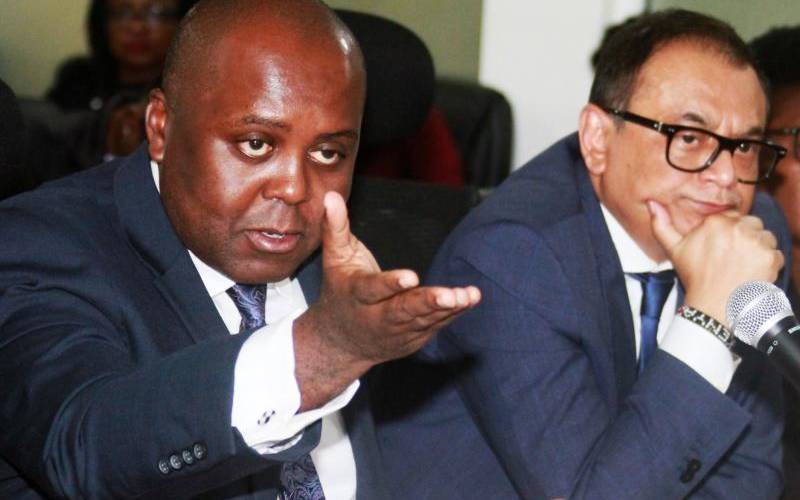×
The Standard e-Paper
Smart Minds Choose Us

Telkom Kenya CEO, Mugo Kibati and Airtel Kenya CEO, Prasanta Das Sarma when they appeared before the Senate ICT Committee at County Hall, Nairobi on October 22, 2021, on the status of their merger. [Boniface Okendo, Standard]
At the height of the heated debate on the proposal to declare Safaricom a dominant player in the telecommunications sector, one of the firm’s senior executives took a veiled dig at one of their competitors.